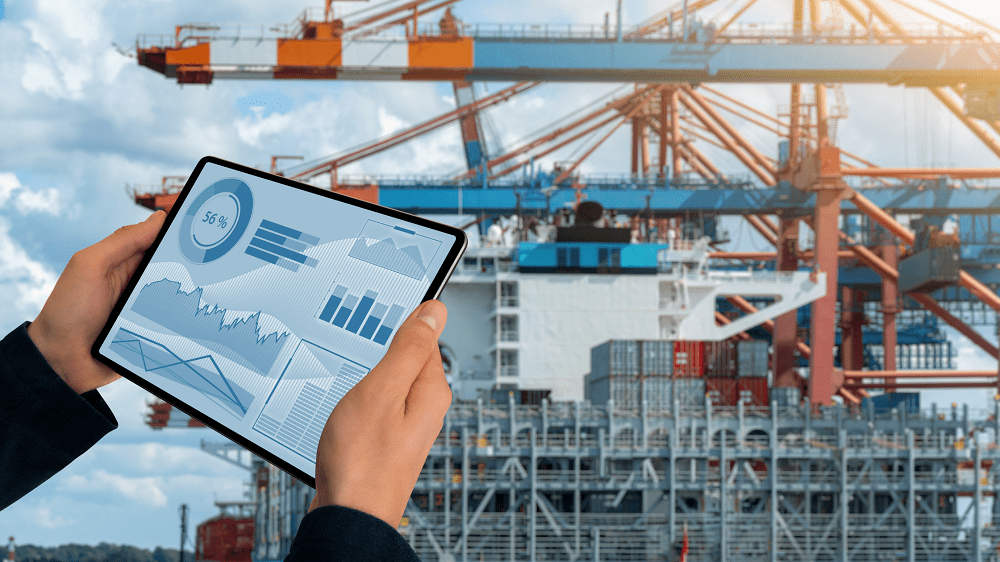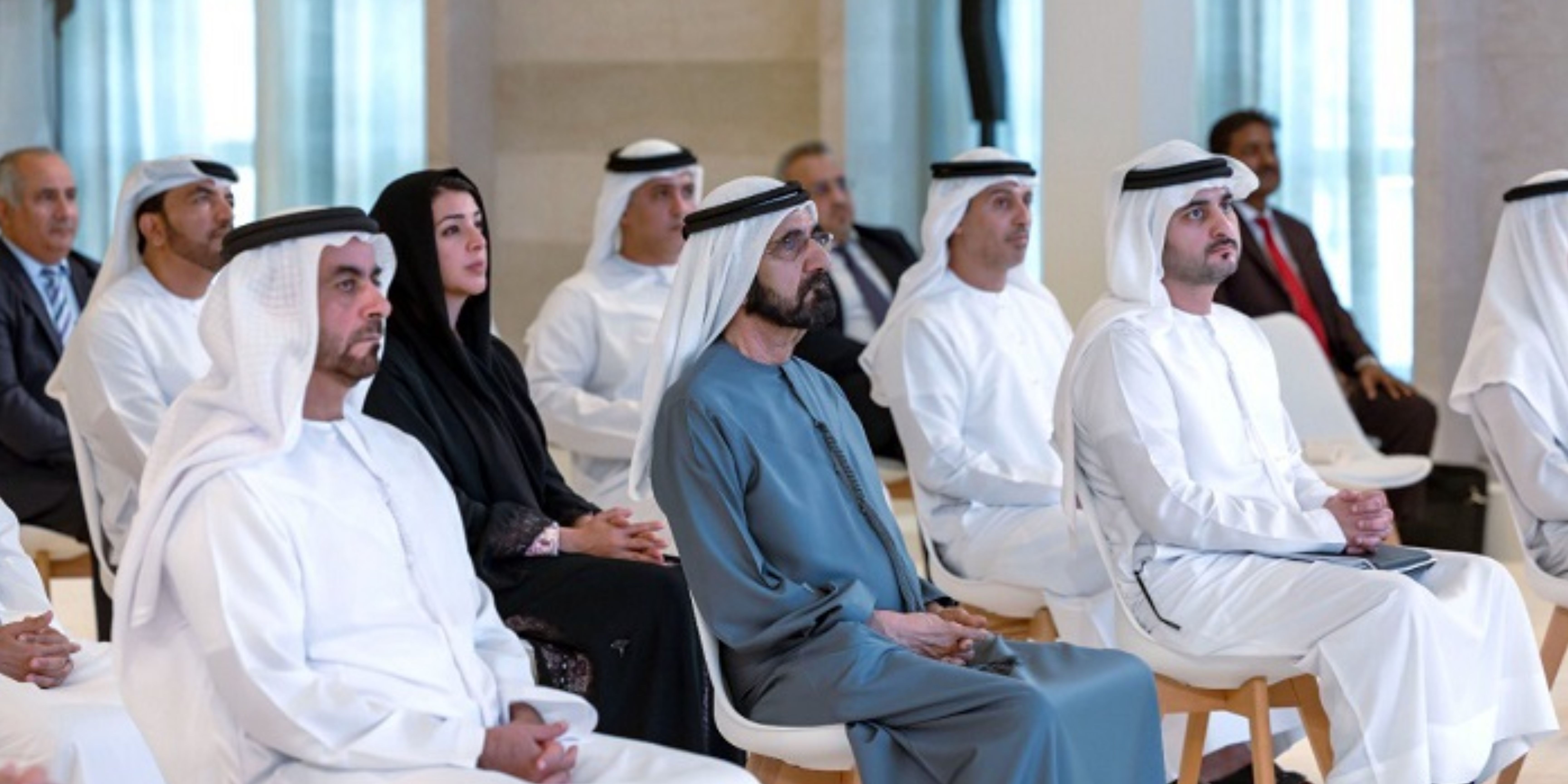Digitization Recent reports on digitizing sea shipping confirmed the positive impact of enhancing competitiveness and flexibility in global trade, which coincided with the UAE's growing number of global competitiveness indicators in the maritime freight forwarding sector. It ranked third globally this year in facilitating seaborne trade and fueling ships. The country's ports were also ranked among the top ten international ports in terms of container handling.
A report by the World Bank and the International Association of Ports and Harbors (IAPH) showed that digital technology can significantly enhance the performance and resilience of marine supply chains, given the strategic role of the container shipping industry in the global economy. The report also emphasized that digital transformation could bring wide-ranging economic and environmental benefits.
In light of this, the UAE has set a leading global example in supporting the expansion of digital services and smart applications in the sea transport sector during the COVID-19 pandemic. The promising effects of this have appeared remarkably this year.
UAE initiatives to enhance supply chains during and after the Corona crisis
According to the Minister of Energy and Infrastructure, Eng. Suhail Al Mazrouei, the global supply chain, and the maritime sector have been severely affected because of the (Covid-19) pandemic, in the Emirates, efforts have been combined to confront various challenges and meet the market needs. All ports in the country have been opened around the clock to provide their services, to fully maintain the flow of global trade, and the continuity of maritime supply chains ensuring the delivery of vital goods and supplies.
Last year, the Ministry of Energy and Infrastructure's initiatives varied between automating the shipping sector, supporting seafarers during the challenges they faced because of the pandemic, and enhancing sea cargo shipping security and safety to avoid marine accidents and protect lives.
Along with the UAE’s automation initiatives, it is worth noting that the country was also one of the first member states of the International Maritime Organization to classify seafarers as (priority workers) Amid the supply chain crisis under the “Support Our Blue Army” initiative
Such contributions added to the UAE's leadership in the Arab Digital Economy Index 2022 for the third year as part of the "Seamless 2022" conference.
In light of the UAE's progress in digitalizing the economy, the maritime trade indicators were fruitful; the Abu Dhabi Customs achieved a growth of 15 percent in non-oil trade during the first quarter of this year, compared to the same period last year.
Despite the challenges the shipping sector witnessed in the past two years, Mr. Saif Al Mazrouei, Head of the Ports Sector, stated that the Abu Dhabi Ports Group, in cooperation with its strategic partners, has succeeded in accelerating economic recovery and significantly enhancing business stability.
The Ministry of Energy and Infrastructure gets the Sustainability Pioneer Award for Maritime Shipping
“Reaping the benefits of the container shipping sector’s contributions to digitizing the UAE economy and encouraging investment”
In recognition of its role in setting an example in preserving the safety of the marine environment and moving towards digitization in the shipping sector, the Ministry of Energy and Infrastructure in the United Arab Emirates won two awards with the titles of "Sustainability Pioneer for Shipping" and "Champion in Decarbonization of the Energy Sector" during the Arab Green Summit Awards under the theme of "The First Edition of the Decarbonization and Climate Action Awards (DACA 2022").
Those awards came in affirmation of the Ministry's efforts to enable sustainable development at the regional and international levels and its commitment to implementing the standards set by the International Maritime Organization to remove carbon emissions.
This achievement demonstrates the vital role UAE institutions play in ensuring the progress of sustainability, clean energy, and green shipping. It also presents its efforts to use the latest technologies and innovative solutions to ensure an environmentally friendly marine industry.
In this regard, the Minister's Adviser for Maritime Transport Affairs, Eng. Al-Malik, previously indicated that the pandemic has progressively supported the transformation of digital services and "smart applications" in cargo transportation by sea, noting that one of the most prominent global trends in that sector is supporting the empowerment of autonomous ships.
Notably, the COVID-19 pandemic was one of the reasons supporting businesses to shift to digitization. With the rapid developments in the shipping sector worldwide and the shift towards adopting digital solutions in all businesses, the global logistics and marine services sector is looking forward to strengthening its digital portfolio to meet the growing needs of the supply chains.
In the UAE, the past year has proven the great contributions of automation and digital transactions in the maritime freight forwarding sector, with an increase in awareness of the size of the gains that can be achieved when integrating efficiency with modern technologies.
The need to digitize the transport and logistics sector in the UAE has become increasingly important, both from an economic and environmental point of view, as one of the main sectors that drive economic growth. Digital transformation has contributed to reducing operational costs, strengthening the national economy, and emphasizing the UAE’s pursuit of sustainability in line with the sustainability agenda.
UAE contributions to the institutional development of the global marine industry
For its leadership in digitizing the freight forwarding and logistics sector, the UAE was re-elected to the International Maritime Organization (IMO) Council for the third time during the 2021 IMO elections.
As part of the organization's council, the UAE plays an active role in developing maritime strategies, policies, and agreements that enhance maritime safety standards, protect the marine environment and improve the sector's efficiency worldwide.
During the 109th session of the meetings of the International Maritime Organization's Legal Committee, the UAE put forward a number of proposals for amending the organization's legal system to develop the global maritime industry and enhance its competitiveness; the International Maritime Organization approved all of these proposals.
The UAE has played an active role in developing maritime strategies and policies, setting standards that regulate the work of the ocean freight sector, and strengthening maritime legislation and regulations to serve the cargo shipping sector and international trade through close cooperation with the member states of the organization.
Further Emirati efforts to optimize digitalizing the maritime shipping sector
The country has increased and improved the capacity of Jebel Ali Port in the wake of the epidemic crisis and its aftermath to receive large numbers of goods transported via containers in various modes of shipping, depending on the port facilities and the country’s strategic assets around the world.
The UAE is working on the continuity of implementing digital development projects in the pioneering Khalifa Port, which ranked this month among the top five globally on the global container port performance index. Also, with the development of Al Dhafra ports to provide a vital link between land operations and the offshore oil and gas sector,
With the UAE's digital leadership in the shipping and logistics sector, we believe that the UAE constitutes a very encouraging, fertile, and stimulating environment for investment, not only from an economic and trade point of view but also from an environmental one.



